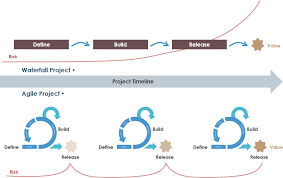The Importance of Software Quality Assurance (QA)
Software Quality Assurance (QA) plays a crucial role in the development process of any software product. It is a systematic way of ensuring that the software meets specified requirements and is free from defects before it is released to customers.
Benefits of Software QA
Improved Product Quality: By conducting thorough testing and quality checks, QA helps identify and fix issues early in the development cycle, leading to a higher-quality end product.
Customer Satisfaction: High-quality software that functions as expected results in increased customer satisfaction and loyalty.
Cost Savings: Detecting and fixing defects early in the development process is more cost-effective than addressing them after the product has been released.
The Role of QA Engineers
QA engineers are responsible for designing test plans, executing tests, identifying defects, and working closely with developers to resolve issues. They ensure that the software meets quality standards and functions as intended.
Testing Methods in Software QA
Functional Testing: Ensures that each function of the software operates in accordance with specifications.
Performance Testing: Evaluates how well the software performs under various conditions, such as load testing and stress testing.
Security Testing: Identifies vulnerabilities in the software that could be exploited by malicious actors.
In Conclusion
Software Quality Assurance is essential for delivering reliable, high-quality software products that meet customer expectations. By investing in QA processes, companies can ensure their software is robust, secure, and user-friendly.
Top 8 Frequently Asked Questions About Software Quality Assurance (QA)
- What is Software Quality Assurance (QA)?
- Why is Software QA important in the development process?
- What are the benefits of implementing Software QA?
- What role do QA engineers play in software development?
- What are the common testing methods used in Software QA?
- How does Software QA contribute to improving product quality?
- What are the challenges faced in implementing effective Software QA processes?
- How can companies ensure that their software meets quality standards through QA?
What is Software Quality Assurance (QA)?
Software Quality Assurance (QA) is a systematic process that ensures software products meet specified quality standards and requirements. It involves a series of planned activities, such as testing, reviewing, and monitoring, to identify and eliminate defects in the software before it is released to customers. Software QA aims to improve the overall quality of the software by implementing best practices, testing methodologies, and quality control measures throughout the development lifecycle. By focusing on preventing issues early on and maintaining consistency in product quality, Software QA plays a critical role in delivering reliable and high-performing software solutions to users.
Why is Software QA important in the development process?
Software QA is crucial in the development process for several reasons. It helps ensure that the software meets specified requirements and functions as intended, leading to improved product quality. By conducting comprehensive testing and quality checks, QA helps identify and address defects early on, reducing the risk of issues arising after the software is released to customers. This proactive approach not only enhances customer satisfaction but also results in cost savings by mitigating the need for extensive post-release fixes. Ultimately, software QA plays a vital role in delivering reliable, high-quality products that meet user expectations and business objectives.
What are the benefits of implementing Software QA?
Implementing Software Quality Assurance (QA) offers a wide range of benefits to organizations developing software products. By incorporating QA practices into the software development lifecycle, companies can ensure improved product quality, increased customer satisfaction, and cost savings. QA helps identify and address defects early in the development process, leading to a higher-quality end product that meets specified requirements. This not only enhances customer experience but also builds trust and loyalty among users. Additionally, by detecting and fixing issues before the software is released, organizations can save time and resources that would otherwise be spent on post-release bug fixes. Overall, implementing Software QA is essential for delivering reliable, high-performing software solutions that meet market demands and exceed customer expectations.
What role do QA engineers play in software development?
QA engineers play a critical role in software development by ensuring the quality and reliability of the software product. They are responsible for designing and implementing test plans, executing tests, identifying defects, and working closely with developers to resolve issues. QA engineers play a key role in maintaining the integrity of the software by conducting thorough testing to ensure that it meets quality standards and functions as intended. Their expertise in testing methods and attention to detail contribute to delivering high-quality software products that meet customer expectations.
What are the common testing methods used in Software QA?
One of the frequently asked questions in Software QA is about the common testing methods used in the field. Software QA employs various testing methods to ensure the quality and reliability of software products. Some common testing methods include functional testing, which verifies that each function of the software operates as intended; performance testing, which assesses how well the software performs under different conditions; and security testing, which identifies and addresses vulnerabilities that could compromise the security of the software. By utilizing these testing methods, QA teams can effectively evaluate and enhance the overall quality of software products before they are released to users.
How does Software QA contribute to improving product quality?
Software QA plays a critical role in enhancing product quality by implementing rigorous testing processes and quality checks throughout the software development lifecycle. By conducting comprehensive testing procedures, including functional testing, performance testing, and security testing, Software QA helps identify and rectify defects early on, ensuring that the software meets specified requirements and functions as intended. Through continuous monitoring and evaluation, Software QA engineers collaborate closely with developers to address any issues promptly, resulting in a higher-quality end product that aligns with customer expectations and enhances overall user satisfaction.
What are the challenges faced in implementing effective Software QA processes?
Implementing effective Software QA processes can present various challenges for organizations. One common challenge is ensuring adequate test coverage across all aspects of the software, including different functionalities, platforms, and user scenarios. Another challenge lies in balancing the need for thorough testing with time and resource constraints, often leading to trade-offs between testing depth and project timelines. Additionally, incorporating QA processes into an agile development environment can be challenging due to the rapid pace of iterations and changes. Communication and collaboration between development and QA teams are crucial but can sometimes pose challenges in aligning priorities and expectations. Overcoming these challenges requires a strategic approach, clear communication channels, proper resource allocation, and a commitment to continuous improvement in Software QA practices.
How can companies ensure that their software meets quality standards through QA?
To ensure that their software meets quality standards through QA, companies can implement a comprehensive quality assurance process that includes thorough testing at every stage of development. This process involves creating detailed test plans, conducting various types of testing (such as functional, performance, and security testing), identifying and documenting defects, and collaborating closely with developers to address issues promptly. Companies should also establish clear quality metrics and benchmarks to measure the effectiveness of their QA efforts. By investing in skilled QA engineers, utilizing automated testing tools, and prioritizing continuous improvement, companies can enhance the quality of their software products and deliver a superior user experience to their customers.



